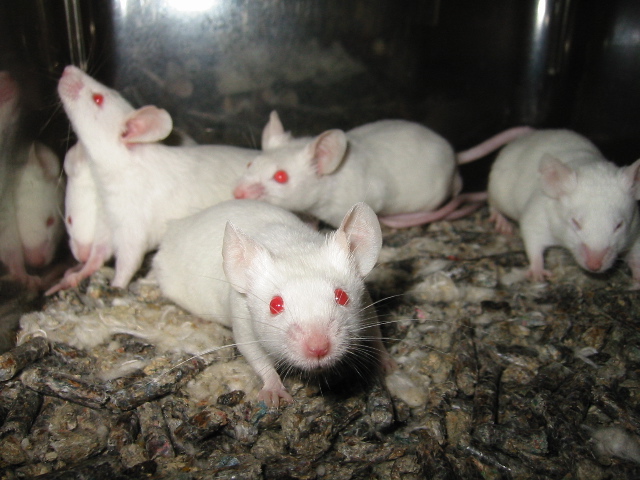
Evidence that parents’ exposure to trauma can be inherited (apart from exposure to the parents’ psychology later) has often been dismissed as superstition.
A strictly Darwinian understanding of genetics—one gene one protein was the central dogma, remember?—ruled. If it couldn’t fit into that explanation, it couldn’t be true.
Fast forward. In a recent mouse study, reported in Nature:
In the new study, Isabelle Mansuy, a neuroscientist at the University of Zurich, Switzerland, and her colleagues periodically separated mother mice from their young pups and exposed the mothers to stressful situations — either by placing them in cold water or physically restraining them. These separations occurred every day but at erratic times, so that the mothers could not comfort their pups (termed the F1 generation) with extra cuddling before separation.
When raised this way, male offspring showed depressive behaviours and tended to underestimate risk, the study found. Their sperm also showed abnormally high expression of five microRNAs. One of these, miR-375, has been linked to stress and regulation of metabolism.
The F1 males’ offspring, the F2 generation, showed similar depressive behaviours, as well as abnormal sugar metabolism. The F1 and F2 generations also had abnormal levels of the five microRNAs in their blood and in the hippocampus, a brain region involved in stress responses. Behavioural effects persisted in the F3 generation as well.
…
To rule out the possibility that the effects of stress were transmitted socially, the researchers also collected RNA from the F1 males’ sperm and injected it into freshly fertilized eggs from untraumatized mice. This resulted in mice with comparable depressive behaviours and metabolic symptoms — and the depressive behaviours were passed, in turn, to the next generation. More.
No wonder some are standing athwart epigenetics and yelling Stop! Apart from the damage such findings could do to current textbook Darwinism as such, if this sort of finding holds up and also proves true for humans, just think of all the assumptions that must be rethought, about the long-term effects of trauma.
If the body itself has memories, we could be hearing less of “Aw never mind. They’ll get over it.”
Here’s the abstract:
Small non-coding RNAs (sncRNAs) are potential vectors at the interface between genes and environment. We found that traumatic stress in early life altered mouse microRNA (miRNA) expression, and behavioral and metabolic responses in the progeny. Injection of sperm RNAs from traumatized males into fertilized wild-type oocytes reproduced the behavioral and metabolic alterations in the resulting offspring. – K. Gapp et al. Nature Neurosci. http://dx.doi.org/10.1038/nn.3695; 2014 (Paywall)
See also: Epigenetics and neuroplasticity: The case of the rewired ferrets
Epigenetics: Inheritance of acquired traits gradually gaining acceptance
Follow UD News at Twitter!
Vid is discussing a study of inherited fear in mice.